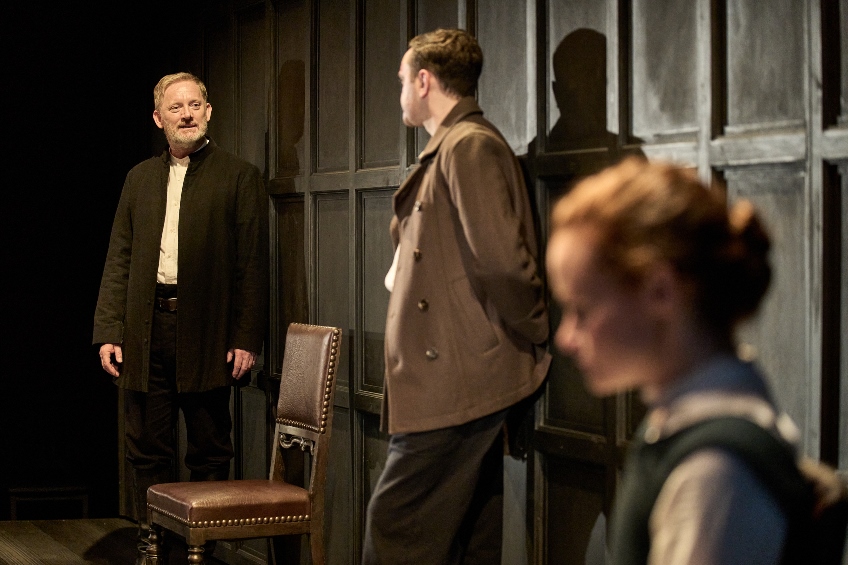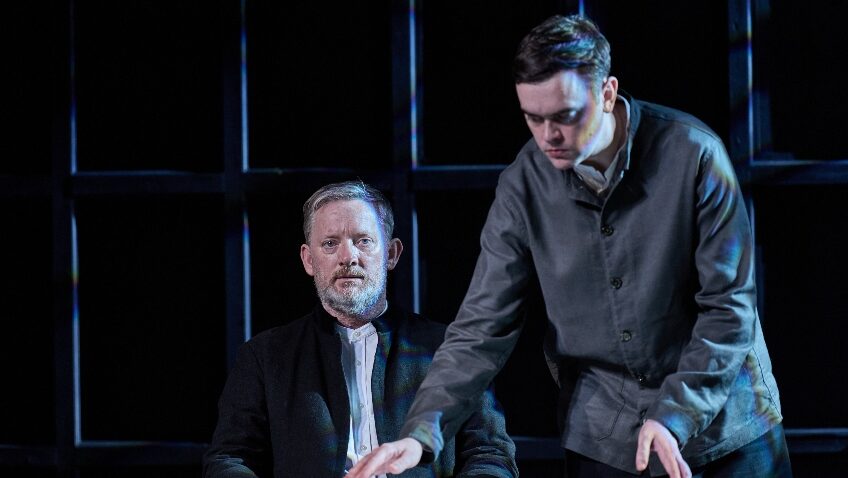Mary is Mary Stuart, Queen of Scots, a popular subject for writers. There has been a famous play by Schiller and a famous opera by Donizetti plus lots of romantic novels, films, television series and West End plays by Gordon Daviot, Clifford Bax and Robert Bolt.
And now for something completely different: a play about Mary Stuart in which Mary Stuart does not appear; except very, very briefly and only as a vision.
Rona Munro was inspired to dramatise Scotland’s medieval history after she had seen Shakespeare’s English history cycle performed by the RSC. The James Plays, a trilogy about James I, II and III, did well at the National Theatre
Mary, the sixth instalment of her seven plays re-examining history, is a talky and static Q&A political drama, set in Holyrood Palace in 1567.
Thompson (Brian Vernel), a government courtier, wants Sir James Melville (Douglas Henshall) a Scottish diplomat, a man of principle, to sign a document demanding Mary to abdicate the throne and let her son (the future King James I of England), rule Scotland instead.

Mary is accused of carnal lust, adultery and murder. It was widely believed that the Earl of Bothwell whom she had married, had murdered Lord Darnley, her second husband, at her instigation.
Is Mary fit to rule? The whole nation is against her. The country is in chaos. What would be best for Scotland? It is Melville’s loyalty to Mary, whom he has served for 15 years, ever since she was a nine-year-old, however, which stops him from adding his signature to the many who have already signed the document.
What really happened at Dunbar Palace when Mary was abducted by Bothwell? Melville argues that she was raped by Bothwell and forced to marry him. But is that true? Was she raped or did she willingly have sex with him and willingly marry him?
Brian Vernel’s energetic interrogation drives the play’s better second act. The only other character, Agnes (Rona Morison), a Protestant servant and eye-witness, is also fictional. Agnes’s role is spokesperson for women who are victims of sexual assault and violence.
The screaming women, who invade the stage in the final moments of Roxana Silbert’s production, feel as if they have been added on at the last minute. Munro’s intimate three-hander play does not need them. The political statement has already been made.
To learn more about Robert Tanitch and his reviews, click here to go to his website 




